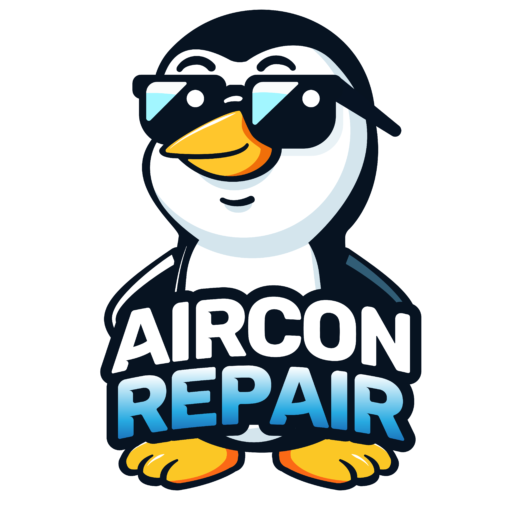An air conditioner plays a crucial role in keeping indoor spaces cool and comfortable, especially in hot climates like Las Vegas. However, many homeowners and business owners encounter an issue where their AC unit drips water. Is this normal? Should you be concerned? Understanding why this happens and how to address it can help prevent damage and maintain your system’s efficiency. In this article, we’ll explore why some air conditioners drip water while others don’t, common causes of water leakage, and effective solutions to keep your AC running smoothly.
Understanding the Source of Water in an Air Conditioner
Your air conditioner works by cooling warm indoor air while also dehumidifying it. During this process, moisture in the air condenses on the cold evaporator coils inside the unit, forming water droplets. This collected condensation typically drains through a designated outlet. However, if something disrupts this process, you may notice water dripping where it shouldn’t be.
Common Factors That Cause an Air Conditioner to Drip Water
1. AC Unit Design and Water Management
Different types of air conditioners manage water differently:
- Drip-Free Units: Some modern AC models feature advanced technology that recycles condensation. This water is used to cool the system further, improving efficiency and minimizing dripping.
- Dripping Units: Traditional window and split AC units rely on condensate drain pipes to expel water outside.
2. Environmental Conditions Affecting Condensation
- High Humidity Levels: In humid areas, such as Florida, the AC works harder to remove moisture from the air, resulting in increased water production. If the drainage system isn’t functioning correctly, this can lead to dripping.
- Dry Climates: In arid regions like Las Vegas, the air has lower moisture levels, so an air conditioner produces less condensation, reducing the likelihood of dripping.
3. Installation and Maintenance Issues
Proper installation and regular maintenance are essential to prevent unwanted water leaks:
- Clogged Drain Line: Over time, dust, mold, and debris can block the drain line, causing water to back up and leak from the unit.
- Improper Slope of the Drain Pipe: If the condensate drain line isn’t installed with the right incline, water may not flow out properly, leading to accumulation and dripping.
- Frozen Evaporator Coils: Low refrigerant levels or restricted airflow can cause the evaporator coils to freeze. When they eventually thaw, the excess water may overflow instead of draining properly.
4. Indoor vs. Outdoor AC Units
- Indoor Units: If your indoor air conditioner is dripping, it could indicate a clogged drain pipe, improper refrigerant levels, or frozen coils.
- Outdoor Units: Outdoor units usually expel water normally, but excessive dripping may occur if condensation builds up due to extreme humidity or rain.
5. Energy Efficiency and Water Evaporation
High-efficiency air conditioners are designed to minimize water waste by evaporating collected condensation rather than letting it drip. If your unit is older, it may not have this feature, making it more prone to visible water leaks.
How to Fix a Dripping Air Conditioner
If your air conditioner is leaking water, take these steps to diagnose and resolve the issue:
1: Check the Drain Line
- Locate the drain pipe and inspect it for blockages.
- Use a wet/dry vacuum to clear any debris.
- Flush the drain line with a mixture of water and vinegar to prevent mold buildup.
2: Inspect the Air Filter
- A dirty air filter can restrict airflow, causing coils to freeze and leak water.
- Replace or clean the filter every 1–3 months to ensure smooth operation.
3: Verify Proper Installation
- Ensure the AC unit is level, as tilting can cause improper drainage.
- Check that the drain pipe is positioned correctly for effective water flow.
4: Monitor Refrigerant Levels
- Low refrigerant levels can cause ice buildup, leading to excessive dripping when it melts.
- Contact an HVAC professional to check and refill the refrigerant if needed.
5: Consider Upgrading to a High-Efficiency Unit
If your air conditioner is outdated, switching to a modern, energy-efficient model with condensate evaporation technology can prevent water leakage while improving overall performance.
When to Call an HVAC Professional
While basic maintenance can solve many issues, some cases require expert intervention. Call a professional if:
- Your AC is leaking large amounts of water continuously.
- The drain line remains clogged despite cleaning.
- You notice mold growth around the unit or a musty smell.
- The AC stops cooling properly due to refrigerant-related issues.
Conclusion
A dripping air conditioner can be a minor inconvenience or a sign of a more serious problem. By understanding how your AC manages water and taking preventive measures, you can ensure efficient performance and avoid costly repairs. Regular maintenance, proper installation, and timely professional inspections will help keep your air conditioning system in top condition, providing reliable cooling for years to come.
If you need professional AC services, whether for maintenance, repairs, or installation, reach out to a trusted HVAC specialist in your area. Taking action early can save you from bigger headaches down the line!
